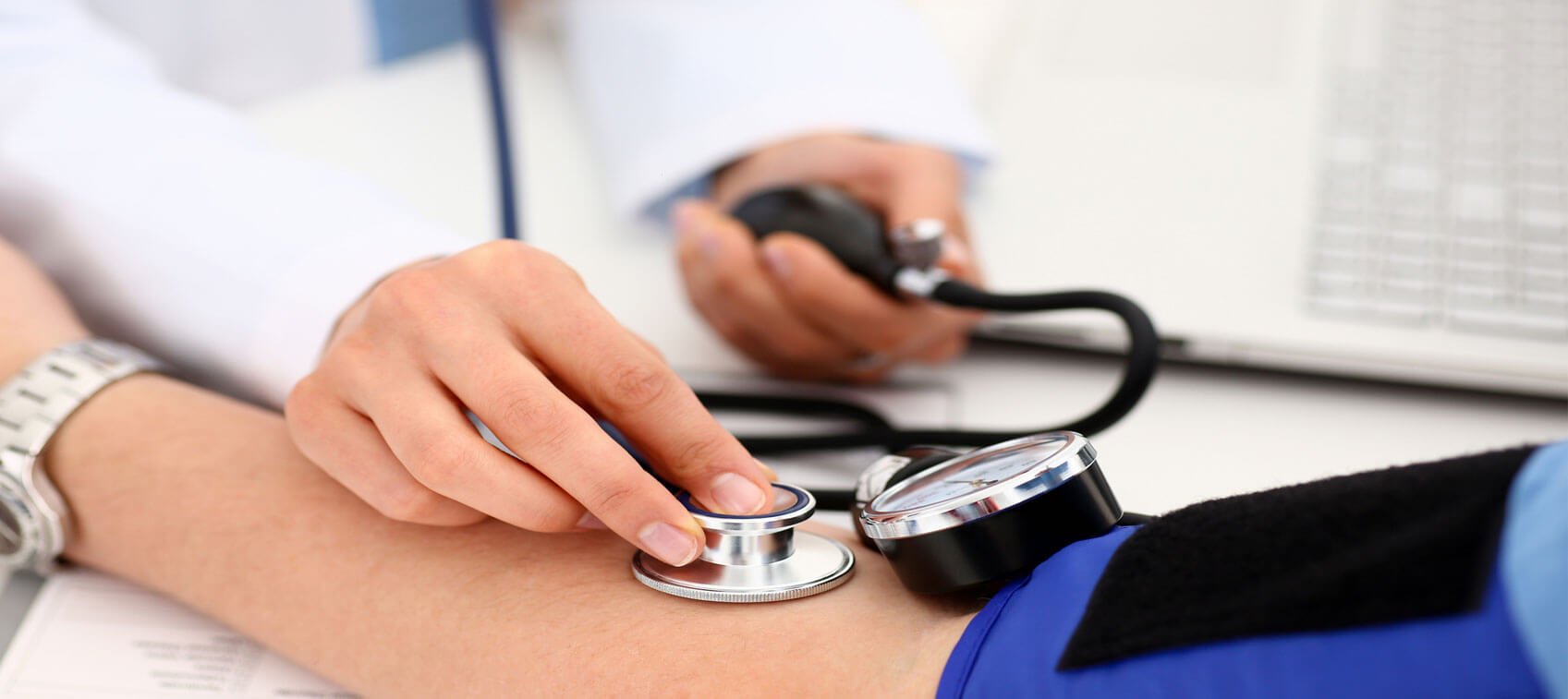
Dennis came to see me because he was experiencing a throbbing sensation in his head and ringing in his ears. We tested his blood pressure, which was quite high at 175/112 mm Hg. This didn’t really surprise him, since he’d been prescribed a blood pressure medication several years before but stopped taking it because it made him feel tired and lethargic.
He was surprised, however, to learn that he also had moderately high blood sugar (prediabetes) and very high cholesterol and triglycerides. In addition, he carried about 30 extra pounds, mostly in the abdominal area.
This led Dennis to ask a logical question: Does high blood pressure cause diabetes?
Hypertension, High Blood Sugar, & Metabolic Syndrome
High blood pressure does not cause diabetes, and diabetes doesn’t cause high blood pressure. They are, however, closely related. Both are key components of metabolic syndrome, a cluster of risk factors that include:
- Abdominal obesity (waistline over 40" in men & 35" in women)
- High blood sugar (fasting glucose over 100 mg/dL)
- High triglycerides (over 150 mg/dL)
- Low HDL cholesterol (less than 40 mg/dL in men & 50 mg/dL in women)
- High blood pressure (130/85 or higher)
In short, Dennis was a poster boy for metabolic syndrome, a condition that affects one in three US adults and dramatically increases the risk of type 2 diabetes, heart attack, and stroke. These risk factors have one thing in common: All are fueled by insulin resistance.
Insulin Resistance & Metabolic Syndrome
Insulin resistance is simply an inability of the cells to properly respond to insulin’s signals to take up and utilize blood sugar. Unfortunately, it has adverse effects throughout the body.
- Excess visceral fat within the abdominal cavity (belly fat) secretes fatty acids, inflammatory compounds, and hormones that compromise insulin signaling and glucose uptake.
- Blood sugar remains high, so the pancreas must work harders to increase insulin output. Over time, insulin production falters, blood sugar is chronically elevated—and you have diabetes.
- Elevated triglycerides (fats in the blood), low protective HDL cholesterol—plus high levels of blood sugar, insulin, and inflammatory compounds—damage the blood vessels and set the stage for atherosclerosis (hardening and narrowing of the arteries).
- Stiff, narrow arteries are less responsive, which causes blood pressure to rise, resulting in hypertension.
- The combination of diabetes and hypertension increases the risk of diabetic complications, including the most deadly of them all: cardiovascular disease.
Blood Pressure & Blood Sugar Medications
Conventional doctors emphasize tight control of blood pressure and blood sugar and, to achieve it, prescribe medications that are far from benign.
Most blood sugar-lowering drugs (metformin is an exception) promote weight gain and can cause low blood sugar (hypoglycemia), which is linked with dizziness, confusion, falls, and hospitalization.
Common side effects of antihypertensive drugs include chronic cough, fatigue, depression, erectile dysfunction, and low blood pressure (hypotension).
As these conditions progress, medications become less effective, and more and more drugs get piled on. Patients end up on six, eight, or even 10 drugs! Polypharmacy, as this is called, is a real and growing problem that can only result in patient harm.
Good News, Bad News
The good news is there are drug-free approaches that work for diabetes, hypertension, and metabolic syndrome. The bad news is that although everybody knows about them, few people put them into practice:
- Weight loss is the linchpin. About 85% of people with type 2 diabetes are overweight or obese. Weight gain also dramatically increases hypertension risk. Intermittent fasting (mini-fast) has helped many of my patients not only achieve their ideal weight but also improve—and in some cases reverse—diabetes and hypertension.
- A good diet and regular exercise are indispensable. A low-carbohydrate regimen is a powerful tool for enhancing insulin sensitivity, lowering blood sugar, and promoting weight loss. And a potassium-rich diet with lots of vegetables—and a daily glass of low-sodium V8 juice for extra potassium—has therapeutic effects on blood pressure.
- A daily multivitamin is essential, because underlying disease processes increase requirements for antioxidants, magnesium, and other water-soluble nutrients. Supplements that specifically target high blood sugar include berberine, cinnamon, and chromium. For lowering blood pressure, I recommend coenzyme Q10 (CoQ10), fish oil, grapeseed extract, and Balance3.
- Adequate sleep (including treatment of sleep apnea), smoking cessation, and stress management are also important for controlling blood sugar and blood pressure.
Four Months to Good Health
Four months after starting this program, Dennis lost 15 pounds and was well on his way to his optimum weight. His cholesterol and blood sugar were within the normal range, and his blood pressure was textbook perfect at 120/75–80 mm Hg.
“With the changes in my life in just four months,” Dennis wrote, “I do believe it was a miracle. It’s impossible to place enough value on good health and being able to function at a normal level.”


